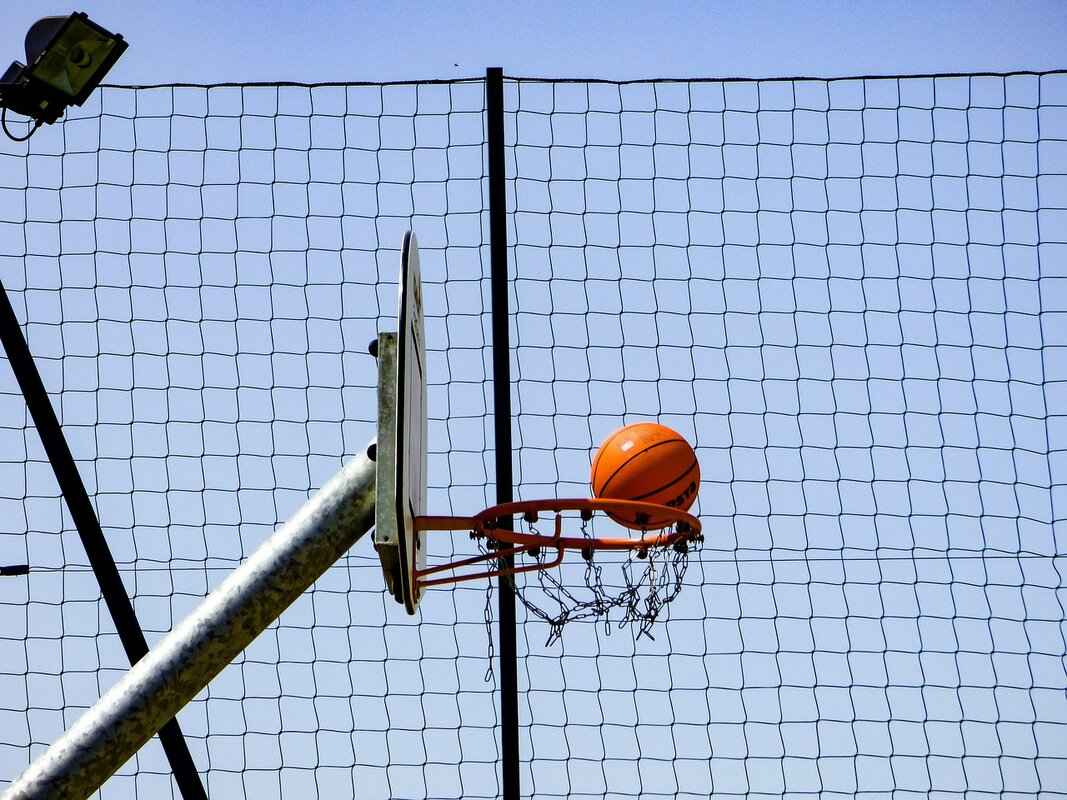This article delves into the key performers and statistics from the Charlotte Hornets and Washington Wizards matchups, providing insights into player performances, team strategies, and overall game dynamics.
The Charlotte Hornets, based in North Carolina, have a vibrant history in the NBA, characterized by passionate fan support and a roster filled with potential. Currently, the team is focusing on developing young talent while integrating experienced players to enhance their performance. Key figures like LaMelo Ball bring not only skill but also excitement to the court, making them a team to watch in the Eastern Conference. The Hornets emphasize a fast-paced style of play, often relying on three-point shooting and quick transitions.
The Washington Wizards have a rich legacy in the league, but recent years have seen a shift in their roster and strategies. With a focus on rebuilding, the Wizards are integrating young stars like Kristaps Porziņģis and Kyle Kuzma into their game plan. Their coaching staff is emphasizing a balanced approach, aiming to strengthen both offensive and defensive capabilities. As they adapt to their new identity, the Wizards are looking to reclaim their position as a competitive force in the NBA.
Historically, the matchups between the Hornets and Wizards have been thrilling, often showcasing intense competition. Over the years, both teams have had their share of victories, with memorable games that highlight their rivalry. Notably, the Hornets have had the upper hand in recent seasons, but the Wizards are eager to turn the tide. Examining past performances reveals patterns in play styles and strategies that could influence future encounters.
In any matchup, individual performances can sway the outcome significantly. For the Hornets, LaMelo Ball stands out as a dynamic playmaker, capable of changing the game’s flow with his passing and scoring ability. On the Wizards’ side, Bradley Beal remains a crucial player, known for his scoring prowess and leadership on the court. Both players will be pivotal in their teams’ strategies, and fans should keep an eye on their performances during matchups.
Analyzing player statistics provides valuable insights into their contributions. For instance, LaMelo Ball averages impressive numbers in points, assists, and rebounds, showcasing his all-around game. Meanwhile, Bradley Beal consistently ranks among the top scorers in the league. Metrics such as field goal percentage and player efficiency ratings offer a deeper understanding of their impact on the team’s success. These statistics not only highlight individual talent but also reflect how each player’s performance influences the overall game.
Coaching plays a vital role in shaping team dynamics. The Hornets’ coaching staff focuses on a fast-paced, offensive strategy that leverages their players’ athleticism. In contrast, the Wizards are adopting a more balanced approach, emphasizing both offense and defense. Understanding these strategies provides insight into how each team prepares for matchups and adjusts during games, which can be crucial for determining the outcome.
Injuries can drastically alter team performance and dynamics. Recent reports indicate that both teams have faced challenges with player injuries, which may affect their strategies moving forward. For example, if key players are sidelined, teams often need to adjust their lineups and game plans, leading to potential shifts in performance. Monitoring these injury reports is essential for understanding the teams’ capabilities in upcoming matchups.
Understanding the offensive and defensive strategies of the Hornets and Wizards is crucial for analyzing their matchups. The Hornets typically favor a perimeter-oriented offense, utilizing their shooters to stretch the floor, while the Wizards employ a more traditional approach, focusing on inside scoring and mid-range shots. Defensively, both teams are working to improve their effectiveness, with the Hornets emphasizing speed and agility, and the Wizards focusing on physicality and rebounding.
Recent games between the Hornets and Wizards have showcased exciting moments and pivotal plays. Highlights include clutch performances from star players and critical defensive stops that have defined the outcomes. These moments not only energize fans but also provide a glimpse into the evolving dynamics of both teams as they strive for improvement and success.
Fan engagement is a critical aspect of both teams’ identities. The Hornets enjoy strong support at home games, with fans creating an electrifying atmosphere that boosts player morale. Similarly, the Wizards have a dedicated fan base that plays a vital role in their home-court advantage. The relationship between teams and their fans can significantly impact performance, especially during close games.
Looking ahead, future matchups between the Hornets and Wizards promise to be thrilling encounters. Fans can expect intense competition as both teams refine their strategies and player performances. Anticipation builds around potential player matchups that could sway the outcomes, making these games must-watch events in the NBA calendar.

Overview of the Charlotte Hornets
The Charlotte Hornets are a professional basketball team in the NBA, representing the vibrant city of Charlotte, North Carolina. Established in 1988, the team has experienced numerous highs and lows, making their journey through the league both fascinating and dynamic. This section provides an in-depth look at the current status of the Hornets, highlighting their roster, key players, and the overall dynamics that shape the team’s performance.
As of the latest season, the Charlotte Hornets are competing in the Eastern Conference, striving to improve their playoff prospects. After a series of rebuilding phases, the team is focusing on developing young talent while also integrating experienced players. Their current standing reflects a mix of promising performances and challenges, as they seek to establish consistency in their game.
Several players are pivotal to the Hornets’ success. LaMelo Ball, the team’s star point guard, has emerged as a leader on and off the court. Known for his exceptional passing ability and scoring prowess, Ball’s vision and creativity make him a crucial asset. Alongside him, Gordon Hayward brings experience and versatility, contributing significantly to both the offense and defense. Another player to watch is Miles Bridges, whose athleticism and energy energize the team and excite fans.
The Hornets’ roster is characterized by a blend of youth and experience, fostering a competitive environment. The coaching staff emphasizes player development, focusing on improving skills and building chemistry among teammates. The team’s dynamic is evident in their fast-paced playing style, which relies on ball movement and quick transitions. Additionally, the Hornets have been investing in their defense, aiming to reduce opponents’ scoring opportunities while enhancing their own offensive efficiency.
Despite their potential, the Hornets face challenges, particularly with consistency in performance. Injuries have occasionally hampered their progress, impacting key players and forcing adjustments. However, these challenges also present opportunities for younger players to step up and gain valuable experience. The team’s management is focused on creating a sustainable model for success, emphasizing long-term growth over short-term gains.
The Hornets enjoy a passionate fan base that plays a crucial role in the team’s morale. Community engagement initiatives and fan events foster a strong connection between the team and its supporters. The atmosphere at home games is electric, with fans rallying behind their team, creating an environment that can significantly influence game outcomes. The Hornets are committed to maintaining this relationship, recognizing its importance for both team spirit and overall performance.
In summary, the Charlotte Hornets are at a pivotal moment in their franchise history, characterized by a blend of talent, potential, and a dedicated fan base. As they continue to develop their roster and strategies, the future looks promising for this North Carolina team.

Overview of the Washington Wizards
The Washington Wizards, established in 1961, have a rich and evolving history within the NBA. Over the years, they have experienced numerous highs and lows, transitioning from championship contenders to rebuilding phases. In recent years, the franchise has undergone significant changes that have shaped its current identity, affecting both the roster and coaching strategies.
As of the latest season, the Wizards have made notable adjustments to their lineup. The current roster features a blend of experienced players and promising young talent. Key figures include Bradley Beal, a perennial All-Star known for his scoring prowess, and Kyle Kuzma, who has emerged as a vital contributor on both ends of the court. The addition of young prospects aims to create a balanced team capable of competing in the Eastern Conference.
Coaching plays a crucial role in the Wizards’ development. The coaching staff, led by Wes Unseld Jr., emphasizes a modern approach to the game, focusing on player development, defensive strategies, and ball movement. Unseld’s philosophy prioritizes creating an environment where players can thrive, emphasizing teamwork and communication. This has been reflected in the Wizards’ gameplay, showcasing a more cohesive unit compared to previous seasons.
Performance trends indicate that the Wizards are gradually improving. Early season struggles have given way to a more consistent style of play, with an emphasis on defensive intensity and efficient scoring. The team has shown resilience in close games, often relying on their star players to deliver in crunch time. Statistical analysis reveals an uptick in assists and a decrease in turnovers, highlighting the effectiveness of Unseld’s system.
In summary, the Washington Wizards are in a transitional phase, with a focus on building a competitive roster and fostering a winning culture. As they continue to develop their young talent and refine their strategies, the future looks promising for this storied franchise. Fans and analysts alike will be watching closely to see how these changes unfold in the coming seasons.

Head-to-Head Matchup History
When analyzing the historical matchups between the Charlotte Hornets and the Washington Wizards, a fascinating narrative emerges that highlights the competitive spirit and evolution of both teams. Over the years, these two franchises have faced off numerous times, resulting in a variety of outcomes that reveal significant trends and pivotal moments.
Historically, the matchups between the Hornets and Wizards have often been closely contested. For instance, during the early 2000s, the teams frequently battled for playoff positioning, leading to some memorable games. One standout matchup occurred on March 18, 2001, when the Hornets edged out the Wizards in a thrilling overtime victory. This game not only showcased the talent on both rosters but also set the tone for future encounters.
| Season | Wins (Hornets) | Wins (Wizards) |
|---|---|---|
| 2015-2016 | 3 | 1 |
| 2016-2017 | 2 | 2 |
| 2017-2018 | 1 | 3 |
| 2018-2019 | 2 | 2 |
In recent years, the dynamics have shifted, with the Wizards often gaining the upper hand in their encounters. The 2019-2020 season was particularly notable, as the Wizards managed to win three out of four matchups, showcasing their offensive prowess and adaptability. Players like Bradley Beal have consistently performed well against the Hornets, often leading his team to victory with impressive scoring and playmaking abilities.
Another intriguing aspect of their head-to-head history is the impact of coaching changes on game outcomes. Both teams have experienced shifts in coaching staff that have influenced their strategies and overall performance. For example, the Hornets’ recent focus on a more defensive style under their current coach has led to lower-scoring games, while the Wizards have embraced a more fast-paced approach, resulting in high-scoring affairs.
In terms of individual performances, key players have often emerged as game-changers in these matchups. The rivalry has seen standout performances from both sides, with players like Kemba Walker and John Wall leaving their mark in crucial games. Their ability to take control during high-pressure moments has not only defined their legacies but also impacted the overall outcomes of the games.
As we look forward, the anticipation surrounding future matchups between the Hornets and Wizards continues to grow. Fans eagerly await the next clash, as both teams strive to improve their standings and assert dominance in the league. The historical context of their encounters adds an exciting layer to the rivalry, making each game a must-watch event.
In conclusion, the head-to-head matchup history between the Charlotte Hornets and Washington Wizards is rich with drama, strategy, and memorable performances. As both teams continue to evolve, their encounters promise to deliver excitement and showcase the best of NBA basketball.

Key Players to Watch
In any matchup, individual performances can significantly sway the outcome. The Charlotte Hornets and Washington Wizards are no exceptions, as both teams boast standout players whose skills and stats can change the course of a game. This section will delve into the key players from both teams, analyzing their recent performances, statistics, and overall impact on the game.
The Charlotte Hornets have seen remarkable contributions from players like LaMelo Ball and Terry Rozier. LaMelo, known for his exceptional playmaking abilities, has been a driving force for the Hornets. With an average of over 20 points and 8 assists per game, his ability to create opportunities for his teammates cannot be overstated. His vision on the court allows him to find open shooters and set up plays that can dismantle opposing defenses. Additionally, his rebounding skills, particularly for a guard, add another layer to his game, making him a versatile threat.
Terry Rozier complements LaMelo’s playmaking with his scoring prowess. Averaging around 22 points per game, Rozier is not only a reliable scorer but also a clutch performer in tight games. His ability to hit three-pointers and drive to the basket makes him a dual threat, forcing defenders to make tough choices. Moreover, his defensive tenacity adds value, as he often takes on the challenge of guarding the opposing team’s best perimeter player.
On the other hand, the Washington Wizards have their own key players, notably Bradley Beal and Kristaps Porziņģis. Beal, a two-time NBA All-Star, has consistently been one of the league’s top scorers, averaging around 25 points per game. His offensive arsenal includes a lethal jump shot and an ability to drive to the basket, making him a constant threat. Beal’s experience and leadership are vital for the Wizards, especially during high-pressure situations.
Kristaps Porziņģis, the 7’3″ forward, adds a unique dimension to the Wizards’ offense. His ability to shoot from long range stretches defenses, allowing for more space for Beal to operate. Averaging nearly 20 points and 9 rebounds per game, Porziņģis is a key rebounder and shot-blocker, contributing significantly on both ends of the floor. His defensive presence in the paint can alter opposing teams’ strategies, making it difficult for them to score in the lane.
As both teams prepare for their matchups, the performances of these key players will undoubtedly play a crucial role in determining the outcome. Fans can expect thrilling displays of skill and athleticism, as LaMelo Ball and Terry Rozier face off against Bradley Beal and Kristaps Porziņģis. The individual battles between these stars will be pivotal, as their contributions can lead their teams to victory. With their current form and impact on recent games, these players are certainly ones to watch in the upcoming contests.

Player Performance Statistics
The section is crucial for understanding the dynamics of a basketball game. In the matchups between the Charlotte Hornets and the Washington Wizards, player statistics not only reflect individual contributions but also highlight team strategies and overall effectiveness on the court. This analysis dives deep into the key metrics that define player efficiency, showcasing how each athlete’s performance impacts their team’s success.
When analyzing player performance, several key metrics come into play:
- Points Per Game (PPG): This statistic is perhaps the most straightforward measure of a player’s scoring ability. It reflects the average number of points a player scores in a game, providing insight into their offensive capabilities.
- Assists Per Game (APG): Assists are critical in team play, showcasing a player’s ability to facilitate scoring opportunities for teammates. A high APG indicates a player’s vision and unselfishness on the court.
- Rebounds Per Game (RPG): This metric highlights a player’s effectiveness in securing possession after missed shots. Both offensive and defensive rebounds are essential for a team’s success, as they can lead to additional scoring chances or prevent the opposing team from capitalizing on missed opportunities.
- Field Goal Percentage (FG%): This statistic measures the efficiency of a player’s shooting. A higher FG% indicates that a player is making a greater proportion of their shots, which is vital for scoring efficiency.
- Player Efficiency Rating (PER): This advanced statistic combines various aspects of a player’s contributions into a single number, providing a comprehensive view of their overall impact on the game.
For the Charlotte Hornets, players like LaMelo Ball have consistently showcased impressive statistics. His ability to score, assist, and rebound makes him a multifaceted threat on the court. In recent games, Ball has averaged over 20 points, 7 assists, and 5 rebounds per game, highlighting his role as a leader and playmaker.
On the other hand, the Washington Wizards rely heavily on players like Bradley Beal. Beal’s scoring prowess is evident in his points per game, often exceeding 25. His ability to shoot from long range combined with his capacity to drive to the basket makes him a versatile offensive weapon. Beal’s assists also contribute significantly to the Wizards’ overall offensive strategy, as he frequently creates opportunities for his teammates.
In addition to individual statistics, it is essential to consider how these performances correlate with team success. For instance, when both teams’ key players are performing at their peak, it often results in closely contested games. Conversely, if a team’s star player is struggling, it can lead to a significant drop in performance and overall team effectiveness.
Furthermore, analyzing these statistics over a series of games can reveal trends and patterns in player performance. For example, a player who starts the season strong may experience a dip in performance due to fatigue or injury, affecting their team’s dynamics. Coaches and analysts closely monitor these trends to make informed decisions about game strategies and player rotations.
In conclusion, player performance statistics are vital for understanding the intricacies of matchups between the Charlotte Hornets and Washington Wizards. By examining metrics like points, assists, rebounds, and efficiency ratings, fans and analysts can gain valuable insights into how individual players contribute to their teams’ successes and challenges on the court.

Coaching Strategies and Styles
In the realm of professional basketball, coaching strategies are pivotal in shaping team performance and influencing the outcomes of games. The Charlotte Hornets and Washington Wizards, two prominent NBA teams, employ distinctive coaching styles that reflect their unique philosophies and tactical approaches. This section delves into the intricacies of these strategies, examining how they affect player performance and overall team dynamics.
The coaching staff of the Charlotte Hornets, led by their head coach, emphasizes a fast-paced and dynamic style of play. This approach prioritizes ball movement and spacing, allowing players to exploit defensive mismatches effectively. The Hornets often utilize a three-point shooting strategy, aiming to stretch the floor and create open shots for their perimeter players. This tactical emphasis not only enhances scoring opportunities but also keeps opposing defenses on their toes, as they must constantly adjust to the threat of long-range shooting.
On the other hand, the Washington Wizards have adopted a more balanced approach under their coaching regime. Their strategy focuses on a blend of offensive and defensive principles, aiming to create a cohesive unit that can adapt to various game situations. The Wizards often rely on their star players to take charge during critical moments, utilizing isolation plays that capitalize on individual skill sets. This strategy can lead to explosive scoring bursts but may also result in inconsistencies if not executed properly.
One of the key factors influencing the effectiveness of coaching strategies is the ability to make in-game adjustments. Both teams have shown a willingness to adapt their tactics based on the flow of the game. For instance, if the Hornets find themselves struggling against a particular defensive scheme, their coaching staff is quick to implement alternative plays or defensive sets to counter the opposition. Similarly, the Wizards have demonstrated flexibility in their game plans, often switching between man-to-man and zone defenses to disrupt their opponents’ rhythm.
Moreover, the relationship between coaches and players is crucial in determining the success of any strategy. Trust and communication are essential components that enable players to execute their roles effectively. The Hornets’ coaching staff fosters an environment where players feel empowered to express themselves on the court, which can lead to enhanced creativity and improved performance. Conversely, the Wizards focus on cultivating a disciplined approach, emphasizing accountability and teamwork to ensure that all players are aligned with the team’s objectives.
In conclusion, the coaching strategies and styles of the Charlotte Hornets and Washington Wizards significantly impact their overall performance and game outcomes. By analyzing their tactical approaches, it is evident that both teams possess unique strengths and weaknesses that can be exploited or mitigated depending on the matchup. As the season progresses, observing how these strategies evolve will provide valuable insights into each team’s trajectory and potential for success.

Injury Reports and Impact
Injuries are an inevitable aspect of competitive sports, and they can have profound effects on team dynamics and performance. The Charlotte Hornets and Washington Wizards have both faced significant injury challenges this season, which have influenced their strategies and overall game outcomes. Understanding these injuries is crucial for fans and analysts alike as they assess the teams’ current standings and future prospects.
For the Hornets, the absence of key players has been particularly impactful. Recently, they lost their star guard to a knee injury, which has forced the coaching staff to reconsider their game plan. This injury not only affects the scoring capabilities of the team but also disrupts the chemistry that players have developed over time. When a primary ball-handler is sidelined, the team often struggles to maintain offensive flow, leading to a potential increase in turnovers and a decrease in overall efficiency.
Similarly, the Wizards have been navigating their own injury woes. Their leading scorer has been out due to a hamstring strain, which has significantly hampered their offensive output. In the absence of their top scorer, the Wizards have had to rely on less experienced players to step up, which can lead to inconsistency in performance. The coaching staff has responded by adjusting their offensive strategies, focusing more on ball movement and creating open shots rather than relying on isolation plays that typically feature their star player.
Both teams have also had to adjust their defensive strategies in light of these injuries. For instance, without their primary defenders on the court, both the Hornets and Wizards may struggle to contain opposing offenses, leading to higher point totals for their opponents. This shift can create a ripple effect, as teams may find themselves needing to outscore their rivals rather than relying on a solid defensive foundation.
In terms of adjustments, teams often turn to their bench players, who must be ready to seize the opportunity. The Hornets, for example, have seen a surge in performance from their younger players, who are eager to prove themselves in increased roles. This can be a double-edged sword; while it provides valuable experience for these players, it can also lead to growing pains as they adapt to the higher level of competition.
Moreover, the psychological impact of injuries cannot be overlooked. Players may feel increased pressure to perform when their teammates are sidelined, which can lead to heightened stress and potential underperformance. Coaches must therefore not only manage physical adjustments but also support their players mentally during these challenging times.
As the season progresses, the ability of both the Hornets and Wizards to navigate their injury challenges will be crucial. Teams that can effectively adapt their strategies and maintain morale in the face of adversity often find themselves in a stronger position as they move toward the playoffs. Fans will be watching closely to see how these injuries shape the remainder of the season and which players will rise to the occasion in their teammates’ absence.

Offensive and Defensive Strategies
Understanding a team’s offensive and defensive strategies is vital for analyzing their performance in the NBA. The Charlotte Hornets and Washington Wizards employ distinct approaches that reflect their strengths and weaknesses on the court. This section delves into how both teams execute their game plans, focusing on their scoring methods and defensive tactics.
The Hornets have developed a fast-paced offensive strategy that emphasizes perimeter shooting and ball movement. With players like LaMelo Ball leading the charge, they often utilize a high pick-and-roll offense to create opportunities. This strategy allows them to stretch the floor, making it easier for shooters to find open looks. The Hornets excel in transition, capitalizing on fast breaks to score quick points before the opposing defense can set up. Their ability to shoot from beyond the arc is crucial, as it not only boosts their scoring but also opens up driving lanes for their slashers.
However, the Hornets’ offensive approach is not without its challenges. They often struggle with consistency, particularly in high-pressure situations. Their reliance on three-point shooting can lead to droughts, where scoring becomes a challenge. Additionally, their defensive strategy has room for improvement. While they have shown flashes of solid defense, they often allow too many easy baskets, especially in the paint. This vulnerability can be exploited by teams with strong inside presence.
On the other hand, the Wizards have adopted a more balanced offensive strategy that focuses on both inside scoring and perimeter shooting. With players like Bradley Beal and Kyle Kuzma, the Wizards can effectively score from various areas on the court. Their offensive set often includes isolation plays, allowing their star players to create their own shots. This strategy can be particularly effective against teams that struggle with one-on-one defense.
Defensively, the Wizards have made significant strides. They employ a more structured defensive system that emphasizes communication and teamwork. Their ability to switch on screens allows them to maintain pressure on opposing players, limiting open shots. However, they still face challenges, particularly in rebounding and defending against fast breaks. When their defense falters, it can lead to easy scoring opportunities for their opponents.
In conclusion, both the Charlotte Hornets and Washington Wizards have unique offensive and defensive strategies that reflect their rosters and coaching philosophies. The Hornets thrive on speed and shooting, while the Wizards focus on a balanced approach. Understanding these strategies not only highlights each team’s strengths but also reveals areas for improvement. As the season progresses, adjustments in these strategies will be crucial for both teams to enhance their performance and compete effectively in the league.

Recent Game Highlights
provide a window into the ongoing narratives surrounding the Charlotte Hornets and Washington Wizards. These highlights not only showcase the thrilling moments from their latest encounters but also serve as critical indicators of each team’s current form and strategy. By analyzing the key plays, shifts in momentum, and standout performances, we can gain a deeper understanding of how these factors influence the overall game dynamics.
In their most recent matchup, the Charlotte Hornets displayed a fierce competitive spirit. One pivotal moment occurred in the third quarter when a remarkable three-point shot from their star player ignited a scoring spree. This play not only shifted the momentum in favor of the Hornets but also energized the home crowd, demonstrating the profound impact of fan engagement on team performance.
Conversely, the Washington Wizards faced challenges in maintaining their defensive structure. A critical turning point came late in the fourth quarter when a miscommunication led to an easy fast-break opportunity for the Hornets, resulting in a decisive layup. Such lapses in concentration can be detrimental, especially in tightly contested games, and highlight areas for improvement as the Wizards move forward.
Statistical analysis of the game reveals that the Hornets’ shooting efficiency was significantly higher than that of the Wizards. The Hornets managed to capitalize on their open shots, with a shooting percentage exceeding 50%, while the Wizards struggled to find their rhythm, shooting below 40%. This disparity in shooting efficiency underscores the importance of offensive execution and the ability to convert high-percentage opportunities.
Furthermore, individual performances played a crucial role in shaping the game’s outcome. The Hornets’ leading scorer not only contributed crucial points but also facilitated plays that allowed teammates to shine. His ability to read the game and make quick decisions was evident, showcasing why he is considered a key player to watch in future matchups. On the other hand, a standout performance from a Wizards player, despite the loss, highlighted his potential to influence games positively when given the right support from teammates.
Overall, the recent game highlights between the Hornets and Wizards illuminate the strengths and weaknesses of both teams. As they continue to refine their strategies and address areas needing improvement, fans can anticipate exciting developments in their upcoming matchups. These highlights not only serve as entertainment but also as valuable learning experiences for both teams, shaping their paths as the season progresses.

Fan Engagement and Support
Fan engagement is not merely a buzzword in the world of sports; it is a vital component that significantly influences team morale and performance. The connection between a team and its fans can create an electric atmosphere during games, ultimately affecting the players’ on-court performance. This section delves into the various ways the Charlotte Hornets and Washington Wizards engage with their fan bases, examining the profound impact that fan support has on game-day outcomes.
Understanding Fan Engagement
Fan engagement refers to the emotional and psychological connection that fans have with their teams. It encompasses various activities, such as attending games, participating in social media discussions, and attending fan events. Both the Charlotte Hornets and Washington Wizards have adopted innovative strategies to enhance this connection, ensuring that their fans feel valued and involved.
- Community Involvement: Both teams actively participate in community service and outreach programs, fostering a sense of belonging among fans.
- Social Media Interaction: Engaging fans through platforms like Twitter, Instagram, and Facebook allows teams to share updates, respond to fan queries, and create a sense of community.
- Exclusive Events: Organizing fan appreciation nights, meet-and-greets with players, and behind-the-scenes tours enhances the fan experience and builds loyalty.
The Impact of Fan Support on Game-Day Performance
The atmosphere created by passionate fans during home games can significantly boost a team’s performance. Players often draw energy from the crowd, leading to improved focus and motivation. For instance, the Charlotte Hornets thrive on the enthusiasm of their home crowd at the Spectrum Center, where the noise level can reach exhilarating heights during crucial moments of the game.
Moreover, studies have shown that teams with higher fan engagement levels tend to perform better at home. The Wizards, playing at the Capital One Arena, have experienced similar benefits, with their fans providing an emotional lift that can turn the tide of the game. The psychological advantage of playing in front of a supportive crowd cannot be understated, as it instills confidence in players and can intimidate opponents.
Creating a Lasting Connection
To foster a lasting connection with fans, both teams are increasingly leveraging technology. Mobile apps that provide real-time updates, interactive features, and exclusive content keep fans engaged even when they are not physically present at games. Additionally, virtual reality experiences and enhanced viewing options allow fans to feel closer to the action, regardless of their location.
Furthermore, the significance of fan feedback cannot be overlooked. Surveys and polls conducted by both teams help gauge fan sentiment and preferences, enabling them to tailor experiences that resonate with their audiences. This two-way interaction not only strengthens the bond between fans and teams but also ensures that the organizations remain in tune with their supporters’ needs.
Conclusion
In conclusion, fan engagement is a critical factor that influences both team morale and performance. The Charlotte Hornets and Washington Wizards have recognized the importance of building strong connections with their fan bases, employing various strategies to enhance engagement. As teams continue to innovate and adapt to the changing landscape of sports entertainment, the role of fans will remain pivotal in shaping the future of both franchises. The ongoing support from fans not only uplifts players on the court but also solidifies the community’s connection to their beloved teams.

Future Matchups to Anticipate
Looking ahead, the upcoming matchups between the Charlotte Hornets and the Washington Wizards are generating a buzz among fans and analysts alike. With both teams vying for a stronger position in the league, these games are expected to be thrilling displays of talent and strategy. Here, we will delve into the anticipated matchups, potential player confrontations, and what fans can expect from these exciting encounters.
- Upcoming Game Schedule: The Hornets and Wizards will face each other multiple times in the upcoming season. Key games to watch include their matchups in December and March, which could be pivotal for playoff positioning.
- Player Matchups: One of the most exciting aspects of these games is the individual matchups. Fans can look forward to seeing LaMelo Ball of the Hornets going head-to-head with the Wizards’ Bradley Beal. Both players are known for their scoring ability and playmaking skills, making their duel a highlight of the games.
- Rookie Contributions: The impact of rookies cannot be overlooked. The Hornets’ recent draft picks are expected to play a significant role in their performance, while the Wizards are also integrating young talent who could make a difference in these matchups.
- Coaching Strategies: The coaching styles of both teams will heavily influence the outcomes of these games. The Hornets are known for their fast-paced offense, while the Wizards may focus on a more balanced approach, utilizing their size and experience.
- Fan Engagement: The atmosphere during these games is expected to be electric, with both fan bases eager to cheer on their teams. The support from fans can often provide a crucial advantage, especially in close games.
As the season progresses, injuries and player performance will also play a significant role in shaping the outcomes of these matchups. Keeping an eye on injury reports will be vital for both teams as they prepare for these critical games.
In conclusion, the upcoming matchups between the Charlotte Hornets and Washington Wizards promise to be filled with excitement and drama. With key players, coaching strategies, and fan support all coming into play, these games will be essential viewing for basketball enthusiasts. Fans can expect thrilling performances, intense competition, and memorable moments as these two teams battle it out on the court.

Conclusion: Analyzing the Future of Both Teams
As we look toward the future of the Charlotte Hornets and Washington Wizards, it is crucial to analyze their current trajectories. Both teams have experienced ups and downs in recent seasons, and understanding their paths can provide insights into what fans can expect moving forward. This section will summarize key takeaways regarding their performance, strategic direction, and potential for improvement.
The Charlotte Hornets have shown promise with a young and dynamic roster. Players like LaMelo Ball have emerged as leaders, showcasing their ability to influence games significantly. As the Hornets focus on developing their young talent, maintaining team cohesion will be vital. The front office’s commitment to building around emerging stars suggests a bright future, but it will require consistent performance and strategic acquisitions to compete at a higher level.
On the other hand, the Washington Wizards are in a phase of transition. With recent changes in coaching and player personnel, the Wizards are re-evaluating their approach. The presence of seasoned players like Bradley Beal can provide stability, but the team must also integrate younger talent effectively. The challenge lies in balancing the immediate need for wins with the long-term goal of building a sustainable, competitive roster.
Key takeaways from both teams indicate that while the Hornets are on a growth trajectory, the Wizards are at a crossroads. The Hornets’ focus on developing their young core could yield positive results in the coming seasons, while the Wizards must navigate their transitional phase carefully to avoid stagnation.
Looking ahead, the upcoming matchups between these teams will be critical. Fans should anticipate exciting games as both teams strive to establish their identities. The Hornets will aim to capitalize on their youthful energy, while the Wizards will seek to leverage their experienced players to secure victories.
In conclusion, understanding the future of both the Hornets and Wizards involves recognizing their current states and potential paths. The Hornets seem poised for growth, while the Wizards must make strategic decisions to ensure they remain competitive. As the NBA landscape continues to evolve, both teams will need to adapt and innovate to thrive in this dynamic environment.
Frequently Asked Questions
- What are the key differences between the Charlotte Hornets and the Washington Wizards?
The Charlotte Hornets and the Washington Wizards have distinct playing styles and team dynamics. The Hornets often focus on a fast-paced offense, while the Wizards may emphasize strategic defense. Each team’s roster also influences their approach, with standout players bringing unique skills to the court.
- How do injuries impact team performance during matchups?
Injuries can dramatically shift the balance of a game. When a key player is sidelined, it can alter team strategies and reduce overall performance. Both the Hornets and Wizards must adapt quickly, often relying on bench players to step up and fill the gaps left by injured teammates.
- What should fans look forward to in upcoming Hornets vs. Wizards games?
Fans can anticipate thrilling matchups as both teams vie for dominance. Key player matchups, evolving strategies, and the intensity of rivalry games promise excitement. Keeping an eye on player performance trends and injury reports will enhance the viewing experience!
- How do coaching strategies influence game outcomes?
Coaching strategies are pivotal in shaping how teams perform. Different coaches bring unique philosophies that affect everything from offensive plays to defensive setups. Understanding these strategies can provide deeper insight into why certain games unfold the way they do.














